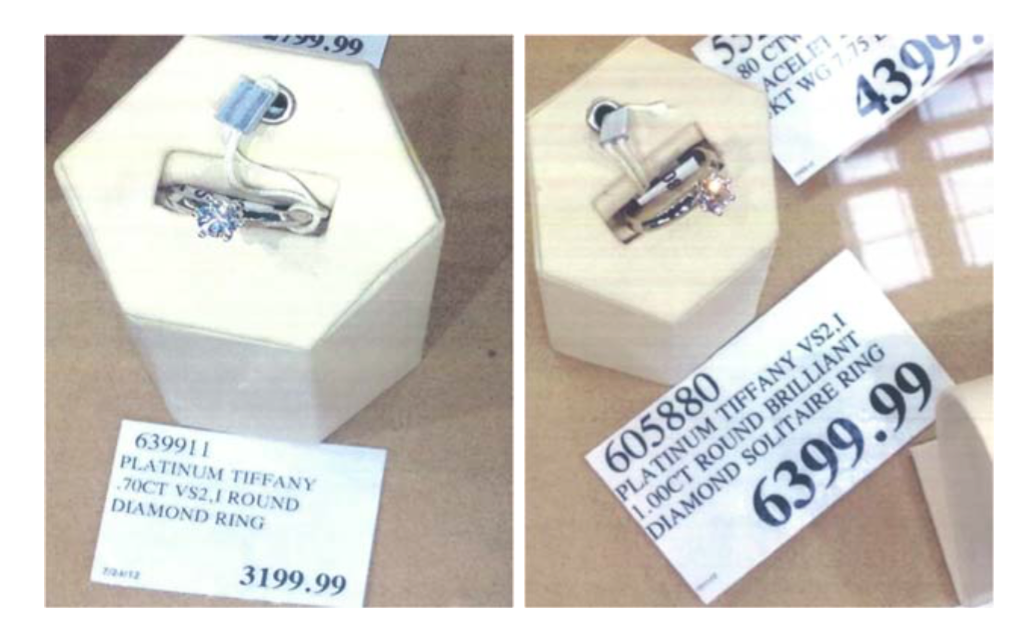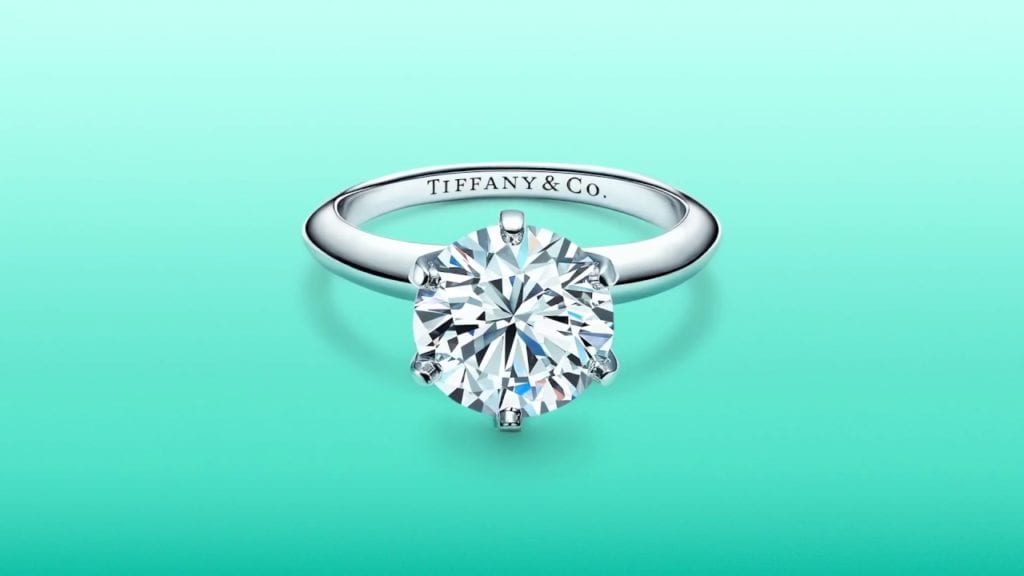Six months after a New York federal court ordered Costco to pay up $25 million for using Tiffany & Co.’s name on non-Tiffany & Co. engagement rings, the famed New York-based jewelry company has asked the Second Circuit Court of Appeals to uphold the lower court’s decision. Tiffany & Co. – which describes its “Tiffany” trademark is one of the “most iconic in the world” – claims that despite the “false narrative” that Costco is creating in connection with the 6-year long case, “the District Court and the jury properly found for Tiffany, and the judgment should be affirmed.”
Unsatisfied with the outcome at the district court level, Costco filed an appeal with the U.S. Court of Appeals for the Second Circuit in September 2017, arguing, among other things, that the court erred in its determination of whether its rings did, in fact, meet the higher bar required for a finding of counterfeiting, as opposed to trademark infringement. Counsel for Tiffany & Co. presented evidence during trial that Costco’s use of the “Tiffany” trademark intentionally created a likelihood of consumer confusion, which is the central element in a trademark infringement claim. However, as Costco pointed out, in order to determine whether such infringement reaches the level of counterfeiting, the trademark at play must be “identical to or substantially indistinguishable from” the rightsholder’s mark.
In response to Costco’s appeal, Tiffany & Co. argues in a newly filed 73 page brief that the lower court’s grant of summary judgment on the issues of trademark infringement and counterfeiting liability – which stems from Costco’s sale of $6,000-plus diamond rings labeled as “Tiffany” that thereby, gave hundreds, if not thousands, of Costco members the wrong impression about the origin of the sparklers – should stand for a number of reasons.
First, Tiffany & Co. asserts that “it is undisputed that Costco” – which is the fourth largest retailer in the world – “intentionally used [its] famous name in point-of-sale signs to sell inferior copies of an engagement ring [style] for which Tiffany is renowned.”
Tiffany & Co. states that “the Polaroid factors” – the elements used to determine whether there is a likelihood of consumer confusion at play, and thus, trademark infringement – “overwhelmingly favor Tiffany,” and as the lower court observed, “Costco did not offer any evidence ‘affirmatively demonstrating that consumers were not confused by the use of the Tiffany word mark in [its] display case signs.’”
 “Tiffany” rings at Costco (image via brief)
“Tiffany” rings at Costco (image via brief)
In fact, Tiffany & Co.’s counsel claims that “Costco admitted that it intentionally used ‘Tiffany’ in signs to describe otherwise unbranded rings, despite knowing that this word was a strong, world- renowned trademark, and without taking any steps to prevent consumer confusion.” And it worked, as the famed jewelry company says that its surveys revealed that a number of “Costco members took their rings home believing they were real Tiffany rings.”
Such a likelihood that consumers would be led to believe that there was a connection between the “Tiffany” rings that Costco was selling and the jewelry brand was bolstered by the fact that “Costco is famous for offering bargains on authentic brand-name products … including those of high-end brands like Louis Vuitton, Prada, Tag Heuer, Armani, Rolex, Cartier and even Tiffany,” Tiffany & Co. argues. “Since most luxury brand manufacturers like Tiffany do not want their products sold in large unadorned warehouses, they will not supply product to Costco,” forcing the Issaquah, Washington-headquartered multinational retail corporation to “source goods from outside normal distribution channels … acquiring off-price seconds, gray market items and overstock from secret sources.”
Still yet, counsel for Tiffany & Co. notes that while “Costco had no proof that ‘Tiffany’ as a standalone [trademark] is generic [as opposed to serving as an indicator of source], that it was the only way to identify this particular ring style, or that it was ever popularly used descriptively for this design,” the retailer argued – albeit unsuccessfully – that its use of the Tiffany name was a “lawful fair use.”
In addition to shooting down Costco’s arguments about its intent (“Costco’s claims of innocent intent, both in terms of using ‘Tiffany’ descriptively and in trying to shift blame to vendors, are nothing more than self- serving conjecture.”) and damages (“Costco’s argument that actual damages are required before punitive damages may be awarded is wrong.”), Tiffany & Co.’s counsel states that Costco is “seeking reversal [of the district court’s findings] by misstating the evidence, mischaracterizing cases, and ignoring its own failures of proof.” The court should do no such thing, the brief essentially asserts, and instead, “the judgment appealed from should be affirmed in all respects.”
UPDATED (August 14, 2019): In response to Tiffany & Co.’s filing, counsel for Costco argued that the jewelry company’s brief July brief – in which it formally asks the Second Circuit Court of Appeals to uphold the lower court’s decision in its favor, including the $25 million damages award – sounds more like “a closing argument to a jury” than the “defense of an ‘improperly’ resolved summary judgment finding.”
As first reported by Law360, “Costco is asking the court of appeals to reverse the lower court’s ruling that held the big-box retailer liable for trademark infringement and counterfeiting,” arguing that “the case belongs before a jury because the parties offer ‘fiercely competing narratives about the mountains of evidence’” at play, including “whether Costco’s rings at issue were, in fact, counterfeits “and whether the [Tiffany name-bearing] signs were infringing.”
*The case is Tiffany & Co. v. Costco Wholesale Corp., 17-2798 (2nd Cir).













